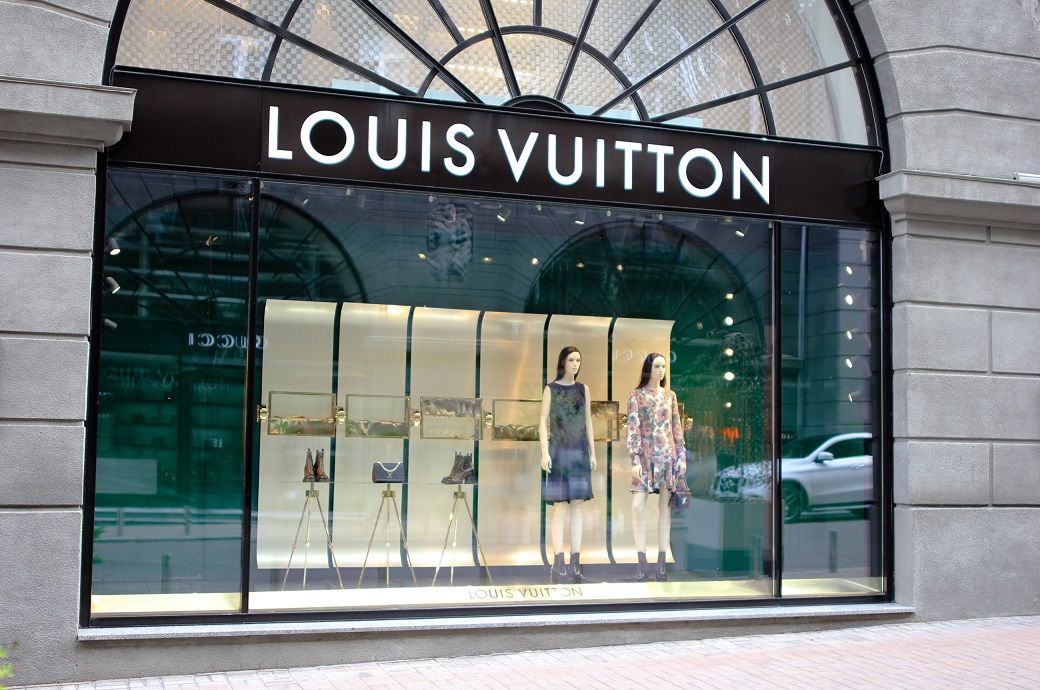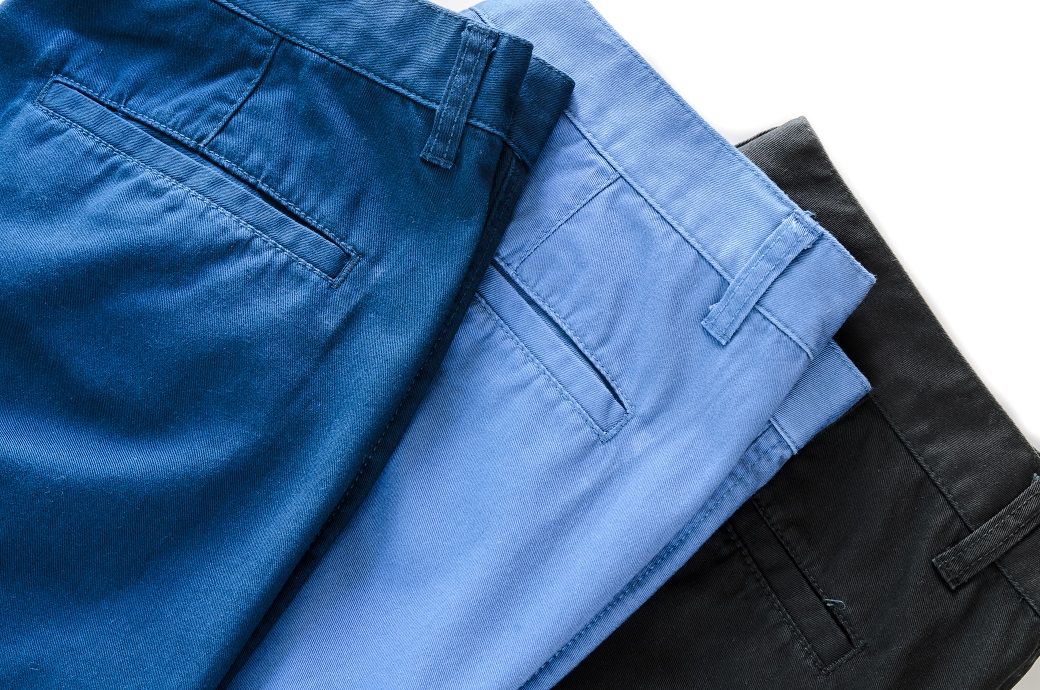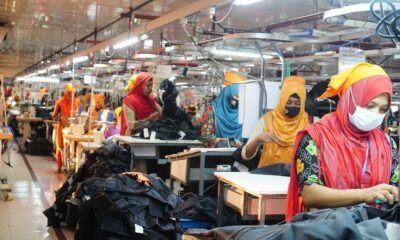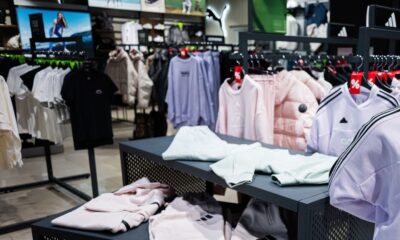Fashion
WOW expands Spain’s retail scene with Dimas Gimeno’s “phygital” vision

Translated by
Nazia BIBI KEENOO
Published
October 31, 2025
WOW opened its doors on Madrid’s Gran Vía in 2022, introducing a new department store concept to the heart of the Spanish capital. In 2023, it launched a second location on Calle Serrano and, by 2025, the company aims to reach €30 million ($32 million) in sales, with long-awaited profitability expected between 2026 and early 2027. Its founder, Dimas Gimeno—former president of El Corte Inglés—spoke on Oct. 30 at the 4th Aragonese Congress on Commerce and Innovation, held in Zaragoza and organized by the Government of Aragon. FashionNetwork.com spoke with Gimeno about his vision for the retail sector, the key challenges it faces, and the evolution of the WOW platform.
FashionNetwork.com: You mentioned at the beginning of your talk that retail defines a city’s identity. How can that identity be maintained in a world where commerce is increasingly uniform?
Dimas Gimeno: By focusing on the local. It’s essential to recognize that a city—and its retail scene—should showcase local products. Spain is particularly privileged because it offers extraordinary craftsmanship and gastronomy. We are also manufacturers and home to thriving brands—that’s what tourists are looking for.
FNW: You maintain that omnichannel hasn’t worked, despite being the major focus of many brands, and that we must move toward the “phygital” model. Why?
D. G.: Omnichannel was a logical idea at the time, but poorly executed. The mistake was trying to digitize the physical world instead of starting from a fully digital mindset. Businesses attempted to adapt new tools to an old model rather than redesigning their approach entirely. It’s not about digitizing the physical—it’s about thinking 100% digitally and, from there, building the physical presence. Some call this “unified commerce”; I call it “phygital.”
The key is understanding that channels no longer exist. We must stop separating “physical” and “digital.” Today’s customer moves fluidly, interacting with your brand across multiple touchpoints.
FNW: Do customers no longer make that distinction between channels?
D. G.: If you ask them, they likely don’t care. A customer might discover a brand on social media, purchase through e-commerce, and then visit the physical store. The store is where loyalty forms and brand relationships deepen—conversion rates are also higher as a result.
Think of the online shopping cart: the ideal would be for the same cart to be accessible both online and in-store. Omnichannel fails when it simply digitizes a physical process. The first step toward true unification is making your entire range available online—a goal many brands still struggle with.
FNW: How can small businesses face this challenge, given that they define cities’ identities?
D. G.: By staying authentic and unique. Small businesses excel in this area because they offer a unique personality, a sense of legacy, and genuine relationships with customers. Their main obstacle is technology: they often can’t invest in digital tools. The solution lies in collaborative platforms that bring small retailers together to create shared online marketplaces. Public funding should help support the development of these initiatives.

FNW: Why do you believe physical stores represent the future of retail?
D. G.: Because I’m a shopkeeper at heart—and a former salesperson. I’ve seen firsthand how a well-executed store can inspire customers to buy everything. That’s something digital alone can’t achieve. Add a distinctive product range and motivated, well-trained sales staff equipped with the right tools, and you create something unbeatable. That’s how you compete with major platforms—by offering what they can’t.
FNW: Customer experience has been a buzzword in recent years. What does it really mean for retailers?
D. G.: The experience is everything. You can have a beautiful store, but if the salesperson doesn’t treat the customer well, it fails. It’s about creating an environment that feels welcoming, where staff connect with shoppers on a personal level. When a customer plans to buy one thing and ends up buying seven, that’s customer experience. It’s about knowing your customer, anticipating their needs, and giving them reasons to return.
FNW: You emphasize sales staff. Is it difficult to find those profiles in retail today, as in hospitality?
D. G.: It is. The service industry is often not viewed as a prestigious career path, which makes hiring challenging. At WOW, we attract talented young salespeople by providing solid training, motivation, and clear career growth opportunities. If companies hire people for a year and then replace them without offering opportunities for advancement, no one will stay. Retail needs to value sales as a long-term profession.
FNW: Speaking of WOW, what’s the company’s current status?
D. G.: We’ve been operating for three and a half years. Our vision hasn’t changed, but we’ve learned how to translate innovation into profitability. You can have an original concept, but you also need a business model that works. We’re not profitable yet, but we can see it on the horizon—expected by next year or early the following year.
Our growth strategy centers on physical retail. Barcelona is the next obvious step, but our digital channel is our biggest opportunity. Online expansion enables us to reach new markets faster and with reduced risk. Ultimately, growth only matters if it’s profitable.
FNW: What share does online currently represent in your sales?
D. G.: Less than a year ago, we migrated our e-commerce operations to Shopify, which meant resetting the digital system. Online sales are now growing fast, and by 2026, we expect them to account for over 15% of total business—and eventually, much more.
FNW: Is your platform available outside Spain?
D. G.: Yes, though for now we only ship within the European Union. By 2026, we plan to expand into new markets.
FNW: Which store performs better—Gran Vía or Serrano?
D. G.: Serrano performs better overall because it’s larger and more consistent, but Gran Vía continues to surprise us. It’s visually striking and benefits from Madrid’s bustling retail corridor. Serrano attracts repeat customers, while Gran Vía gains strong visibility from tourists.
FNW: You talk about curating the assortment. What does that mean?
D. G.: Curation was WOW’s starting point—it’s about building a distinctive product selection. But we’re not just a showcase of brands; we’re a commercial platform. We initially carried high-end luxury and semi-luxury labels but shifted toward a more profitable model. It’s not about expensive versus affordable—it’s about offering originality and innovation. We aim to feature brands that are not typically found in most physical stores. That’s the essence of WOW’s value proposition.
This article is an automatic translation.
Click here to read the original article.
Copyright © 2025 FashionNetwork.com All rights reserved.
Fashion
France’s LVMH posts $96.96 bn 2025 revenue as currency headwinds weigh

Profit from recurring operations stood at €17.8 billion, translating into an operating margin of 22 per cent, which was affected by unfavourable currency movements. Net profit attributable to the group declined 13 per cent to €10.9 billion, while operating free cash flow rose 8 per cent to €11.3 billion. Net financial debt fell sharply by 26 per cent to €6.9 billion, underscoring strong cash discipline.
French luxury group LVMH has reported €80.8 billion (~$96.96 billion) revenue in 2025, down 5 per cent reported and 1 per cent organically, amid currency headwinds.
Profit from recurring operations reached €17.8 billion, while net profit fell 13 per cent.
Performance stabilised in H2 and Q4, supported by US demand and strong cash generation, reinforcing confidence for 2026.
Region-wise, sales in Europe declined in the second half of the year, while the United States recorded growth, supported by solid local demand. Japan saw a decline compared with 2024, when tourist spending had been boosted by a much weaker yen. In contrast, Asia excluding Japan showed a ‘noticeable improvement’ compared with 2024, returning to growth in the second half, LVMH said in a press release.
Despite the full-year decline, performance improved in the second half, with organic revenue growth of 1 per cent, reflecting better trends across business groups after the slowdown seen since 2023. Fourth-quarter organic revenue growth also came in at 1 per cent, in line with the third quarter, signalling stabilisation towards year-end.
In Fashion & Leather Goods, revenue declined YoY in 2025, although LVMH reported an improvement in the second half, supported by local customers after 2024 had benefited from tourist-led demand, particularly in Japan. Profit from recurring operations fell 13 per cent, largely due to currency effects, while the division maintained a very high operating margin of 35 per cent. The group highlighted Louis Vuitton’s product and experiential strength, including The Louis in Shanghai, alongside strong brand momentum driven by fashion shows, and new store concepts. Dior’s creative reset, major store openings, and renewed creative leadership at Celine, Loewe, Givenchy and Fendi were also cited as contributing to fresh energy across the portfolio.
“Once again in 2025, LVMH demonstrated its solidity and effective strategy upheld by its highly engaged teams. The Group was buoyed by the loyalty and growing demand shown by our local customers. This momentum was once again underpinned by the powerful desirability of our brands, which embody creative passion and the pursuit of the utmost quality, and by our ambition of offering our customers extraordinary stores and cultural experiences, as demonstrated by The Louis in Shanghai, and our House of Dior stores in a number of cities around the world,” said Bernard Arnault, chairman and CEO of LVMH.
“In 2026, in an environment that remains uncertain, our Maisons’ ability to inspire dreams—coupled with the highest levels of vigilance with regard to cost management, and our environmental and social commitments—will once again be a decisive asset underscoring our leadership position in the luxury goods market. We will remain true to our entrepreneurial tradition as a forward-looking family group focused on sustainable creativity in high-quality products, exceptional spaces and the long-term future of our outstanding craftsmanship,” added Arnault.
Selective Retailing delivered 4 per cent organic revenue growth and a 28 per cent rise in profit from recurring operations, lifting operating margin by 2 percentage points to 9.7 per cent. DFS showed stabilisation, with streamlining measures improving profitability despite weak international conditions. In January 2026, LVMH signed an agreement with China Tourism Group Duty Free to acquire DFS’ business in Greater China, including the Gallerias in Hong Kong and Macao.
LVMH also reported progress under its Life 360 environmental programme, accelerating circular design initiatives. Forty-one per cent of materials used for products and packaging were sourced through recycling processes, up 8 per cent versus 2024. The proportion of certified raw materials increased further, with cotton at 84 per cent and wool at 76 per cent.
Looking ahead, LVMH said it remains confident for 2026, despite continued geopolitical and macroeconomic uncertainty. The group will continue to focus on brand development, innovation, disciplined cost management and long-term sustainability, aiming to further strengthen its global leadership position in luxury goods.
Fibre2Fashion News Desk (SG)
Fashion
Japan imports $4.2 bn trousers in Jan-Nov; China tops with low prices

China remained Japan’s largest supplier, accounting for imports valued at $*.*** billion and ***.*** million units during the period. This represented more than two-fifths of total import volumes, underscoring China’s continued dominance in mass-market sourcing. However, the average unit price of Chinese trousers and shorts stood at $*.**, well below Japan’s overall average, highlighting China’s strong cost competitiveness. Compared with earlier years, China’s unit prices have steadily softened from $*.** in **** and $*.** in ****, indicating sustained pricing pressure amid intense competition and a buyer focus on affordability, according to *fashion.com/market-intelligence/texpro-textile-and-apparel/” target=”_blank”>sourcing intelligence tool TexPro.
Imports from Bangladesh were worth $***.*** million during January–November ****. Shipments totalled **.*** million units, with an average price of $*.** per unit, the lowest among the three leading Asian suppliers. Bangladesh’s pricing has declined notably from $*.** per unit in **** and $*.** in ****, suggesting aggressive pricing strategies to defend and expand market share in Japan’s highly competitive import landscape.
Fashion
Renewable energy uptake grows, but textile decarbonisation lags

Despite rising renewable installations, global textile decarbonisation remains slow and uneven.
Coal-heavy thermal processes, especially in large tier-2 facilities, continue to dominate emissions, while renewables still form a small share of total energy use.
Progress hinges on accelerating coal exit, electrification, and targeted action in high-impact facilities.
Source link
-

 Sports7 days ago
Sports7 days agoPSL 11: Local players’ category renewals unveiled ahead of auction
-

 Sports7 days ago
Sports7 days agoCollege football’s top 100 games of the 2025 season
-

 Entertainment7 days ago
Entertainment7 days agoClaire Danes reveals how she reacted to pregnancy at 44
-

 Business1 week ago
Business1 week agoBanking services disrupted as bank employees go on nationwide strike demanding five-day work week
-

 Politics7 days ago
Politics7 days agoTrump vows to ‘de-escalate’ after Minneapolis shootings
-

 Tech1 week ago
Tech1 week agoBrighten Your Darkest Time (of Year) With This Smart Home Upgrade
-

 Sports7 days ago
Sports7 days agoTammy Abraham joins Aston Villa 1 day after Besiktas transfer
-

 Business7 days ago
Business7 days agoGM expects to top Ford in U.S. vehicle production as it faces up to $4 billion in tariff costs

















